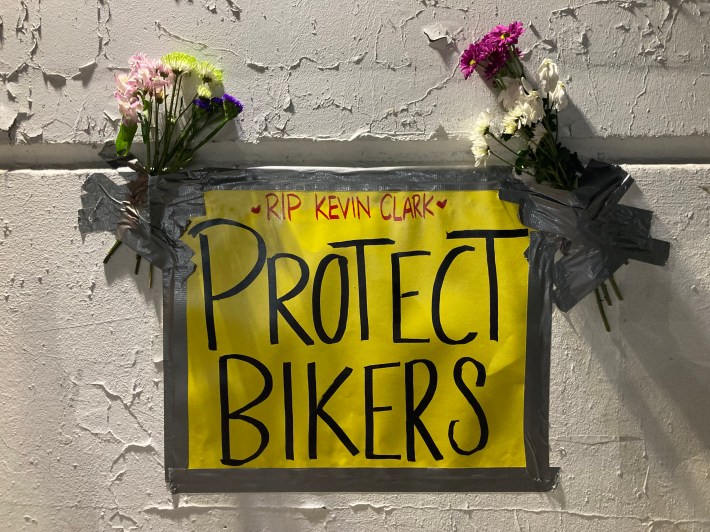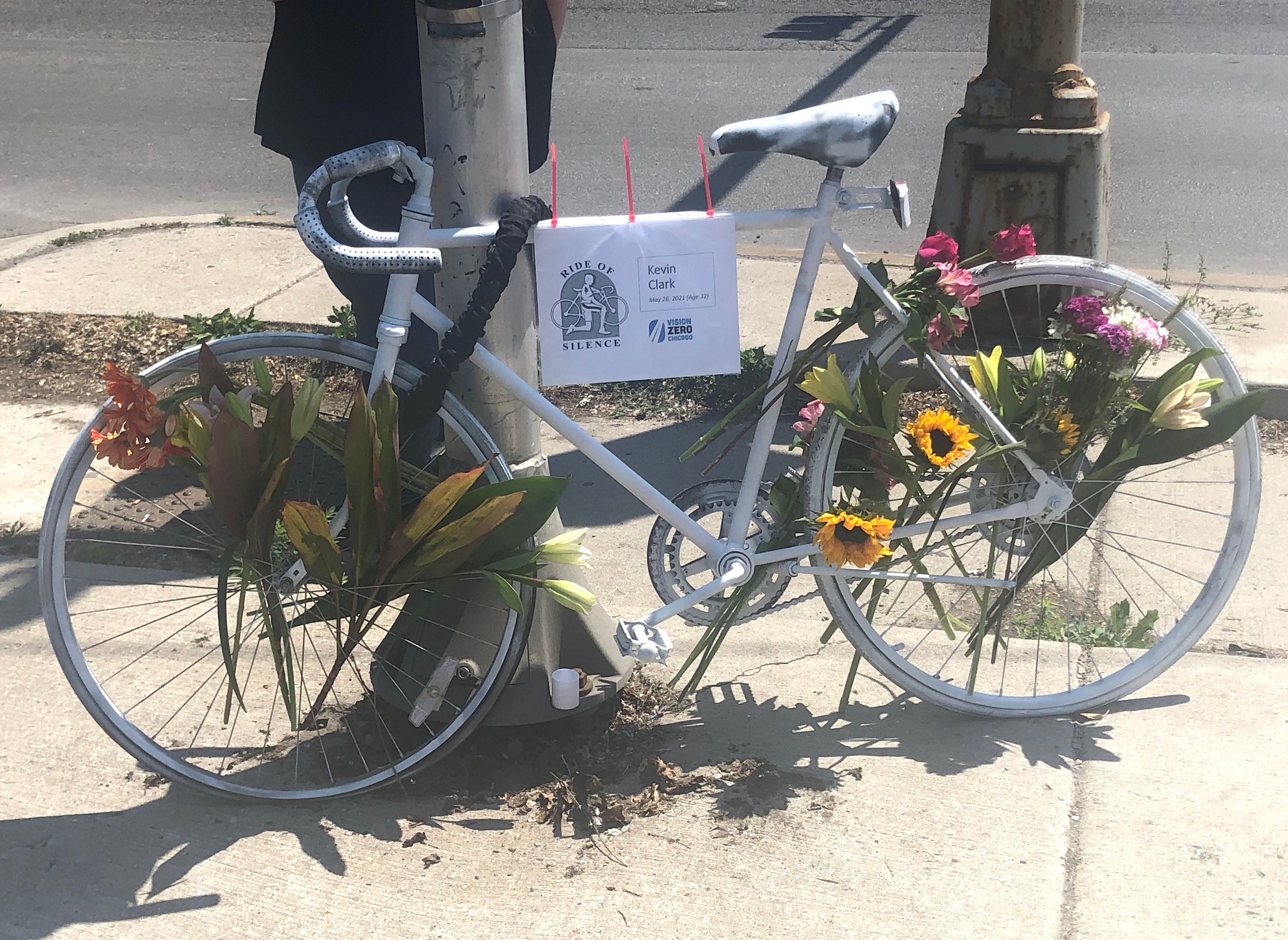On Saturday morning a vigil was held to honor the life of "School of Rock" drummer Kevin Clark, 32, fatally struck by a driver on May 26 in Logan Square, and demand safer cycling and walking infrastructure. Frankly, I’m pessimistic that safety upgrades to the intersection of Logan Boulevard and Western Avenue, where Kevin was killed, will actually happen.
According to CDOT spokeperson Mike Claffey, the Chicago Department of Transportation will be investigating the details of the crash and evaluating the intersection.
Whenever I hear about plans for a study of a problem, it strikes me as something that delays the the solution. In 2018 the Active Transportation Alliance and others published a report on Logan/Western that recommended a road diet, bike lanes, a new crosswalk, and other changes, and government officials took no action. In the meantime Clark was killed, the second person to die on a bike at this location since a motorist struck and killed Tyler Fabeck, 22, in 2008.
We don’t need another study of this intersection. We need changes that will slow drivers down and protections for people walking and biking, and we needed them years ago.
On Saturday I arrived at the intersection after the ghost bike installation, and I was told a driver shouted, “[Expletive] bikers!” as folks stood by a sign posted in the viaduct reading, “Protect Bikers!” I wish I was surprised but anyone who rides a bike on Chicago’s streets knows that plenty of drivers express disdain for people biking either verbally or with their actions behind the wheel. They are emboldened by city, county, and state leadership that has not prioritized sustainable transportation.

There's an old saying that a budget reflects a city’s values, and the same goes for our streets. The current state of our streets in Chicago says that the city values people driving over people walking, biking, and riding transit. Our city lacks a cohesive and comfortable bike network due to constant compromises to appease drivers. City officials are often unwilling to provide physically protected bike lanes, or any bikeways at all, if it means it will become even slightly less convenient to drive and park motor vehicles. Even on streets with bike lanes, the city receives thousands of 311 reports of blocked bikeways, and there has been little action to address the problem.
One would hope that a preventable death would spur needed action to create safer streets but I am unconvinced. I do not doubt local alderman Daniel LaSpata’s desire and efforts to see substantive improvements to the intersection where Kevin Clark was killed. It appears the Illinois Department of Transportation has been the biggest barrier to improvements. IDOT’s historic prioritization of motor vehicles directly contradicts any effort to create safer streets. Even if IDOT comes to the table, the need to allocate funding for safety improvements is another challenge.
As I pondered what it would take to create the sustainable, equitable, and safe streets we need, I kept coming back to a bold vision. Given that the majority of Chicagoans drive to get around, their support will be crucial to moving forward. Aldermanic prerogative, the de-facto ability of Council members to veto projects in their wards, continues to be a problem. But even if that wasn't the issue, we'd still need the backing of the public to allocate the proper funding for safe, sustainable, and equitable streets.
Sure, a strong visionary mayor could create a top-down approach to improving walking, biking, and transit and lobby (or perhaps, bully) IDOT to come to the table as a willing partner, but mayors face re-elections. While lots of change can happen in four years, we’d need to maintain and exceed our progress. A bold and visionary plan for Chicago’s streets that prioritizes sustainable and efficient modes of transportation, space for people, and safety will need to speak to more than current transit riders and cyclists. The question is, do we have the infrastructure and will to create such a vision in Chicago? That remains to be seen.
Update 6/23/21: This piece originally stated that Cook County President Toni Preckwinkle spoke at the event. We have since been informed that Preckwinkle did not attend. Apologies for the mixup. -JG




